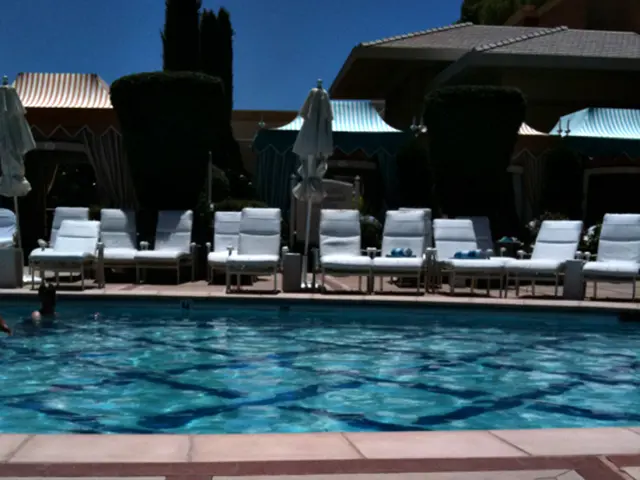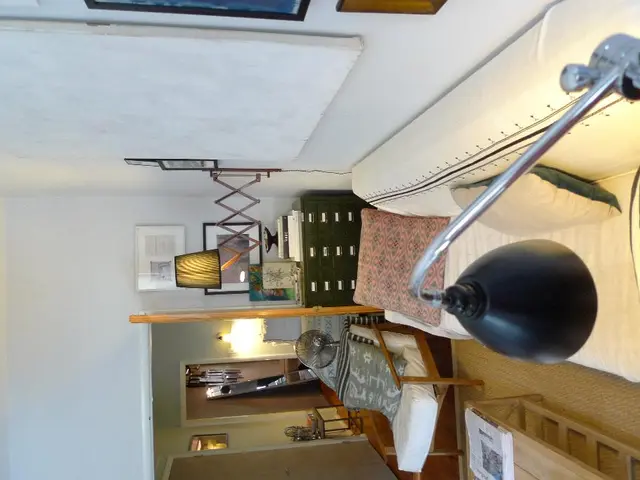In the United Arab Emirates, there's no enforced dress code, yet the appropriateness of one's attire remains a consideration.
In the vibrant and diverse city of Dubai, UAE, a unique social fabric blends modern global fashion trends with deep-rooted Islamic and local traditions. This melting pot of cultures, which welcomes people from all over the world, often leads to different expectations and norms regarding dress, causing misunderstandings in public spaces.
Unlike some Western or globalized cities, where fashion norms have evolved towards more revealing or expressive clothing, seen as a form of personal freedom, the UAE approaches appropriateness with a balance between respect for religious and cultural traditions and the reality of its mixed, international population.
Modesty in dress is tied closely to Islamic values and respect for local customs in the UAE, even though there is no official or strictly enforced dress code with legal penalties in most public spaces. While expatriates and tourists are not legally required to wear traditional Emirati clothing like the abaya or hijab, covering shoulders and knees is generally advised for both men and women, and revealing or transparent clothing is discouraged.
The meaning of appropriateness in the UAE differs significantly from other parts of the world. For instance, what seems acceptable in a casual beach setting might be inappropriate in a mall or government building. This leads to subjective interpretations of modesty and appropriateness, making it essential for visitors and residents to understand not just local laws but cultural sensitivity to the values of modesty and respect.
In other words, dress code reminders remain relevant in Dubai to help navigate these cultural nuances and maintain respect in a diverse society where multiple ideas about appropriateness coexist. The UAE’s approach avoids rigid enforcement but relies on gentle guidance and social norms to encourage respectful dress, reflecting both its moderation and cultural heritage while accommodating global influences.
The UAE, home to over 200 nationalities, is one of the most diverse societies in the world. In Qatar and Oman, public modesty is encouraged but the expectation is more social than legal. In Saudi Arabia, public dress codes for women have relaxed considerably in recent years. However, people unfamiliar with the cultural and religious values of the UAE may not realize they are violating unspoken norms.
The goal should be to create greater cultural fluency, through methods like visual guides, light-hearted campaigns, or orientation materials for newcomers. Schools, malls, and airlines can play a role in sensitively sharing what is expected in family-friendly areas. The idea is not to limit people but to help them thrive in the environment they've chosen to be part of.
Recently, an email was sent to a resident of a gated community in Dubai, UAE, as a reminder about dressing modestly in shared outdoor spaces. The email stated that transparent clothing, offensive slogans, uncovered shoulders, and knees, as well as swimwear outside of the pool or beach, are not allowed in public.
While some may view these reminders as a limitation, it is important to remember that the UAE values tolerance and co-existence, with rare negative reactions towards those who dress differently from cultural expectations. The global shift in fashion norms is one reason for the lack of clarity in appropriate attire, with what was once considered "beachwear" now worn in cafes and shopping malls.
In conclusion, understanding the social parameters and showing self-awareness is a courtesy and a responsibility in the diverse society of the UAE. By adhering to these unspoken norms, visitors and residents can help maintain respect and harmony in this unique and fascinating city.
- In the Middle East, countries like Oman and Qatar, similar to the UAE, also encourage public modesty, but the expectations are more socially enforced rather than legally.
- Saudi Arabia, another Middle Eastern nation, has eased its public dress codes for women quite significantly in recent years.
- The fashion-and-beauty lifestyle in the UAE is a unique blend of modern global trends and deep-rooted Islamic and local traditions, often requiring a balance of modesty in dress.
- While the UAE does not have an official dress code with legal penalties in most public spaces, it is generally advised for both men and women to cover shoulders and knees, and avoid transparent or revealing clothing.
- Home-and-garden businesses in the UAE, just like other sectors, must adapt to the cultural sensitivities and values of modesty and respect in their marketing strategies and store displays.
- The world closely watches the news from the Middle East, particularly the UAE, as it strives to strike a delicate balance between cultural heritage and global influences, especially in terms of lifestyle, fashion, and business.
- Diverse societies like those in the UAE, Saudi Arabia, Jordan, Oman, and Qatar demonstrate the importance of showing cultural fluency and adhering to unspoken norms in order to maintain harmony and co-existence in a globalized world.




